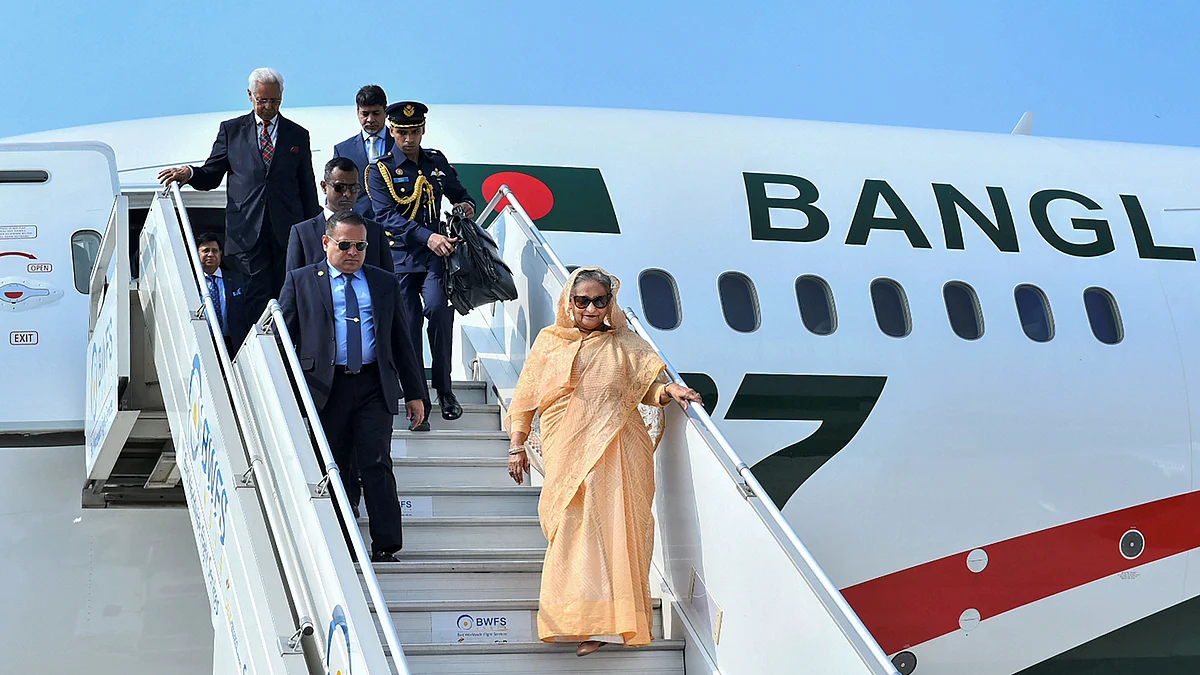As Hasina visits Delhi, Bangladeshis wary of NRC effect
They are not buying Modi’s assurance, Amit Shah’s utterances have made them jittery. Bangladesh already has a million Rohingya refugees

While the Prime Minister of Bangladesh, Sheikh Hasina, is in Delhi to discuss various bilateral issues with his Indian counterpart, Narendra Modi, people on the streets of Dhaka are concerned about two issues: Implications of a pan-India NRC exercise on Bangladesh and Teesta river water.
People in Bangladesh fear that those 19 lakh persons who have been identified as non-Indians in Assam would be forced to go back to Bangladesh. Bangladesh is already home to about a million Rohingyas from neighbouring Myanmar. And they are not going back any time soon.
Prime Minister Narendra Modi had, on the sidelines of the recently concluded UNGA meet, assured Sheikh Hasina that India’s NRC exercise would not affect Bangladesh. But the people here are less than convinced.
The Bangladeshis are more concerned about the views of Union Home Minister Amit Shah who has been insisting that the NRC exercise will be extended to entire India and all “foreigners” will be “thrown out.” This has made matters worse.
Political observers in Dhaka feel that Sheikh Hasina will cash in on the not-too-happy relationship between Modi and West Bengal Chief Minister Mamata Banerjee to clinch a good bargain vis-à-vis the Teesta river water sharing agreement. Mamata had, in the past, refused to part with “even a drop of the Teesta river water” as, she said, it would harm the interest of West Bengal.
India and Bangladesh have just one water sharing agreement. That is the Ganges though the two countries share 54 common rivers. Hasina is expected to insist on a framework for sharing of water of seven other rivers too. The rivers are Manu, Muhuri, Khowai, Feni, Gumti, Dharla and Dudhkumar.
During the Delhi summit, according to a senior Bangladeshi official, India and Bangladesh are likely to discuss the issue of mutual withdrawal of the objections lodged with the United Nations to resolve the dispute related to the claims in the continental shelf area in the Bay of Bengal.
In 2009, India staked its claim to the continental shelf of Bay of Bengal, cutting Bangladeshi access to the deep sea and creating a dispute over 9,000 square kilometre of area claimed by Bangladesh. Bangladesh immediately lodged objections with the UN on the matter.
External Affairs Minister S Jaishankar, during his recent visit to Dhaka, had discussed the issue with Bangladeshi Foreign Minister A. K. Abdul Momen where both sides agreed to withdraw the matter from the United Nations and amicably sort it out through bilateral talks.
India is keen to bring Bangladesh into its coastal radar chain network. This is also likely to be discussed when the two prime ministers meet.
Follow us on: Facebook, Twitter, Google News, Instagram
Join our official telegram channel (@nationalherald) and stay updated with the latest headlines
